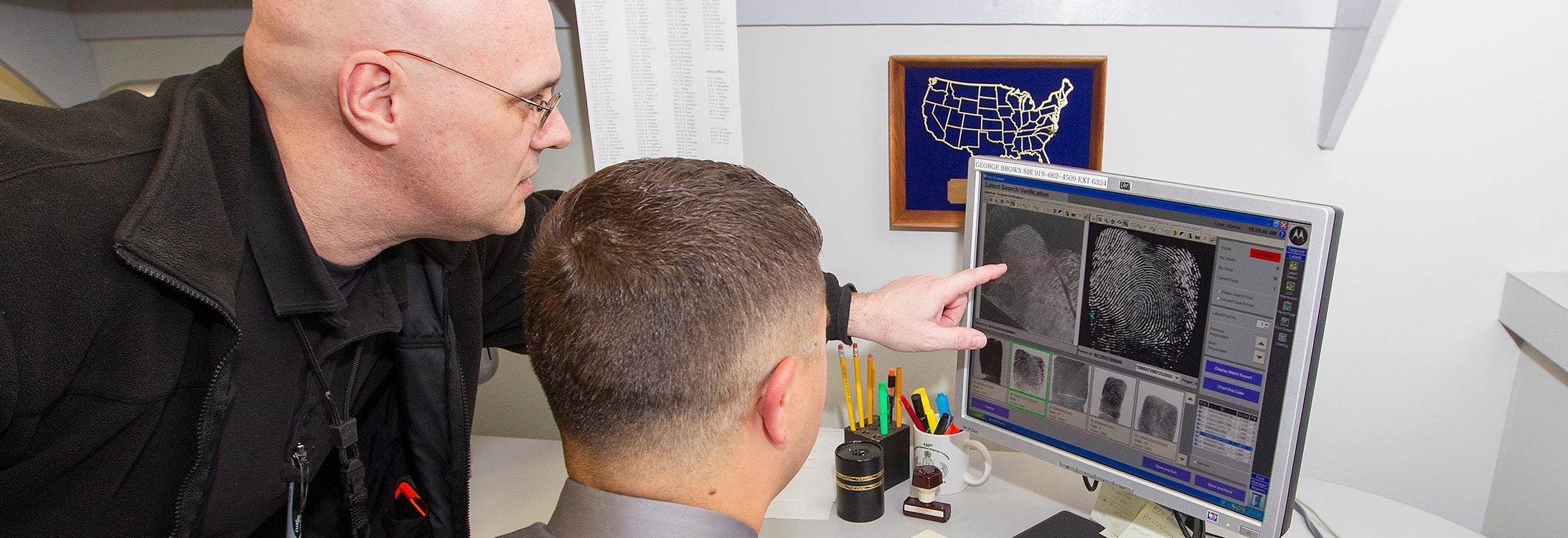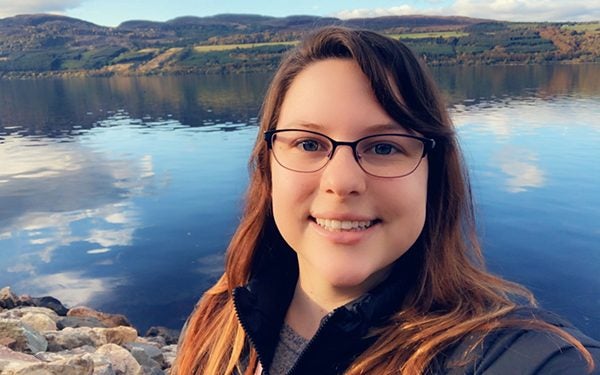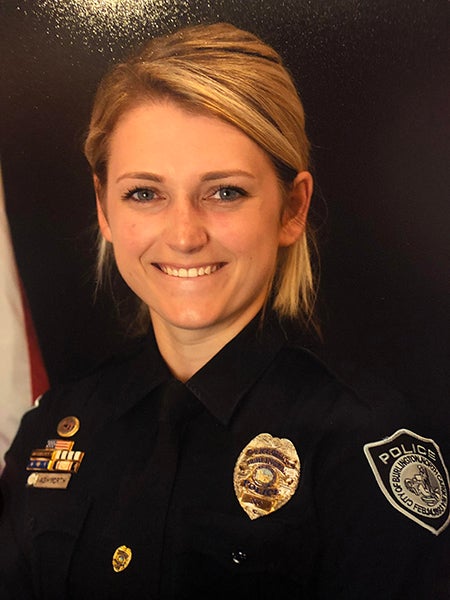FRESH EYES
ECU criminal justice students provide fresh eyes on cold cases for SBI
East Carolina University graduate students in the Department of Criminal Justice are providing fresh eyes on cold cases in partnership with the North Carolina State Bureau of Investigation
In a new pilot project this spring, ECU students reviewed one of the bureau’s unsolved cases — a 1980 murder of a man in Northampton County — and provided feedback in a final report with actionable leads to the agency. Now, six graduate students in the department are assisting the SBI as they investigate a second cold case.
“Working on the cold case allowed me to get experience in the field and helped me familiarize myself with police reports and procedures, unlike anything you can get from a normal classroom atmosphere,” said Mary Anne Werner, who participated in the pilot project.
Werner, who received a psychology degree and worked as a library assistant prior to attending ECU, said this was her first experience in law enforcement.
“They wanted fresh eyes on the case and thought that individuals with no background in law enforcement might be the way to go for these cold cases,” she said.
The idea was introduced when the SBI’s Cold Case Investigative Team (CCIT) began searching for non-law enforcement resources to partner with to resolve cold case homicides. Agent Walter Brown, CCIT supervisor, asked part-time ECU criminal justice instructors and SBI agents Robert Evans and Jonathan Lee about partnering with the university. Evans and Lee recommended offering a course in which students could help review cold case homicides. Brown then partnered with Dr. Heidi Bonner, criminal justice associate professor and department chair, and Dr. Michele Stacey, criminal justice associate professor and graduate program director, to work with their students.
“We were, of course, excited about the idea, and the students seem to be enjoying it as well,” said Stacey, who also hopes this venture will become a long-standing relationship with the SBI.
“The course gives students a chance to gain experience and have a direct impact on a horrible crime,” Brown said. “In return, the SBI has a cold case homicide reviewed from an academic perspective. Law enforcement resources are stretched thin, and these cases may not have been reviewed if it wasn’t for this course.”
The 11-week summer course contains two key elements: learning how new technology may be applied to cold cases and reviewing case files. This summer, students are reviewing a 1988 murder of a woman in Maxton.
“The technology that is used in investigations has changed considerably since these crimes happened. So, the first part of the course is all about looking at those changes,” Stacey said.
The second part of the class is when students examine the files for physical evidence that may be reanalyzed using modern technology, which Stacey said is what has helped to solve many cold cases.
“I’m enjoying the practical application of this class. I’m able to read and learn from my classmates and then immediately use the knowledge to figure out how it may apply to the case and an investigative strategy,” said Holly Lovern, part-time criminal justice graduate student and gender violence service coordinator at UNC-Chapel Hill. “It’s also humbling to remember what I learn and do through this class may have a real impact for a victim, their loved ones and the community.”
Stacey said that although many of the students in criminal justice have law enforcement experience, they don’t have experience working on cold cases. She said cold cases are unique and require a different set of knowledge and skills.
“I’m hoping that the students gain an appreciation for that process,” she said. “These students are getting to apply what they are learning to a real case. That isn’t something they get to do in their other classes.”
“I love investigations and piecing together mysteries that have yet to be solved. Taking this class has revamped my passion for investigations as well as a new love for reviewing cold cases. I believe taking this class will help better prepare me to become a detective in my own police agency,” said Jennifer Ashworth, criminal justice graduate student and patrol officer with the Burlington Police Department who investigates domestic violence cases, homicides, crimes against persons/property and motor vehicle crashes, and enforces traffic and criminal laws.
“It also brings a sense of honor because we are reviewing a case that might not have been reviewed in a long time, or at all,” Ashworth said. “My hope is to help bring the family some sense of relief knowing their loved one has not been forgotten.”


